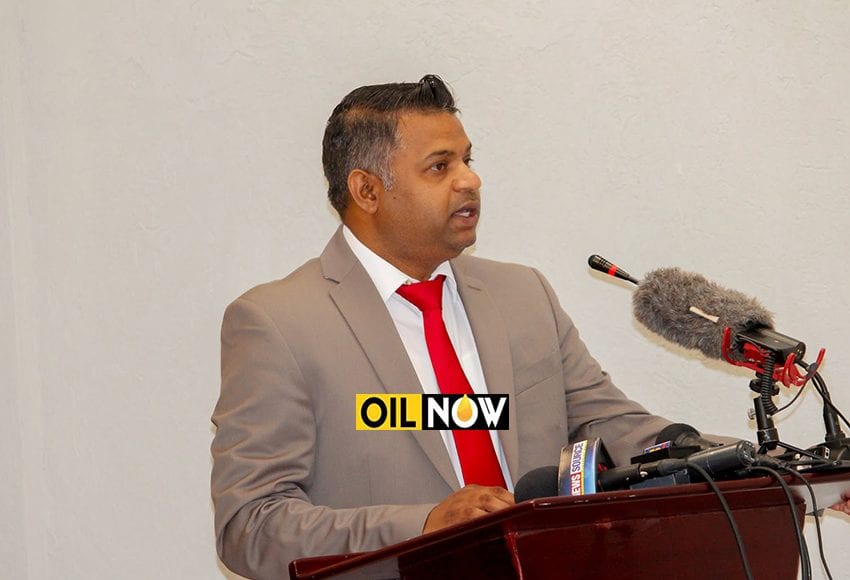President of the Georgetown Chamber of Commerce and Industry (GCCI), Deodat Indar, is calling on the Guyanese government to immediately put in place measures to regulate the influx of expatriate workers through robust immigration policies and to priorities locals for employment opportunities in the emerging Oil and Gas sector.
Mr. Indar was on Tuesday last addressing a Guyana Private Sector Commission’s (PSC) Oil and Gas Seminar held this week in the South American country’s capital, Georgetown.
The GCCI President reminded its membership that the country is a party to the Treaty of Chaguaramus and founding member of CARICOM, and as such, “we have the free movement of labour.”
He said however, “…we have to be careful of what are some of the skilled labour we allow in this country, what are some of the systems we have to put in place for workers’ permits.”
The Private Sector Executive told the PSC membership, “…we have to ensure that Guyanese people, although we are late on the curve; we have ourselves a fighting chance to be employed in the sector.”
Speaking to other measures of support that must be provided by government in order to position its local private sector to take advantage of the emerging opportunities; he used as example, international certification.
“We also have to look at signing up on the IMO – International Maritime Organisation,” since this is “the reason we cannot issue certificates to our crew members like the SDCW Certificates for them to go on offshore vessels…is because we are not party to the International IMO…So therefore our people have to go to Trinidad (& Tobago) and elsewhere to get certified. “
According to Mr. Indar, this costly exercise is a deterrent.
“That is why our people are not certified, and in this oil and gas business you have to be certified…We need basic safety training, we need survival training, we need incident and accident response training.”
He told the Guyanese business leaders, “We have to do this because we want to make sure that Guyana benefits, and Guyanese benefit from this natural resource.”



